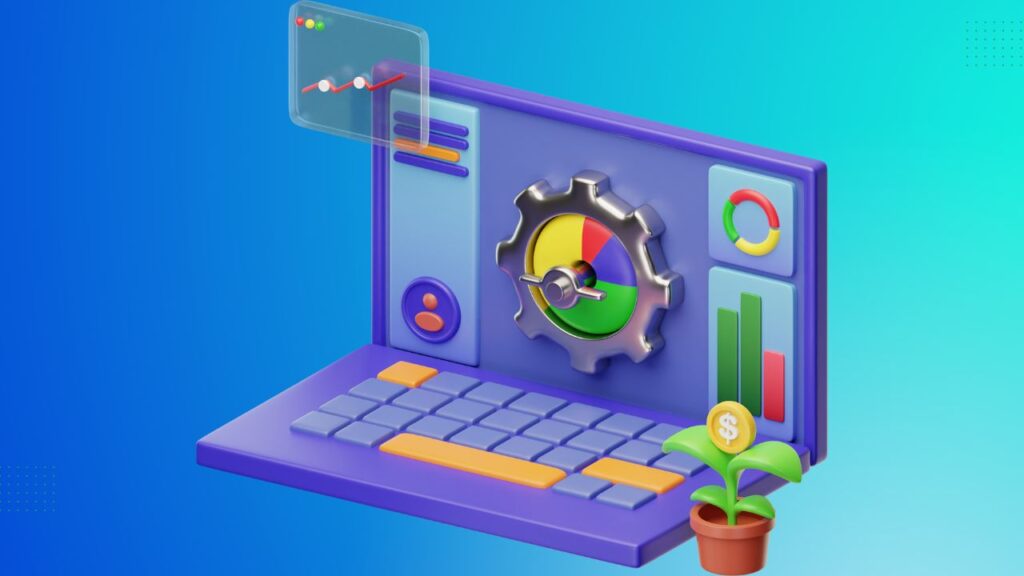As millennials pursuing graduate degrees while working part-time, it’s crucial to have smart financial strategies in place.
Why? Well, here’s a staggering fact: According to recent research, the average student loan debt for millennials is a whopping $37,000. Yikes!
I’m here to guide you through some game-changing financial strategies tailored specifically for us part-time grad students.
We’re going to dive into budgeting techniques, minimizing expenses, maximizing income opportunities, and investing in our financial futures.
We all know how challenging it can be to juggle work and studies, and with limited income, it’s essential to make every dollar count.
With the right financial plan in place, we can navigate this journey with confidence, minimize our debt, and build a solid foundation for a prosperous future.
So, whether you’re just starting your part-time grad program or are already in the midst of it, this article will equip you with the tools and knowledge to make smart financial decisions.
Get ready to take control of your money, overcome financial hurdles, and achieve your academic and financial goals. Let’s dive in!
1. Financial Landscape of Part-Time Grad Students

1.1 The financial challenges faced by part-time grad students
1.1.1 Limited income and balancing work and studies
We all know the struggle of trying to make ends meet with a part-time job while pursuing our studies.
In fact, according to a recent survey, 77% of part-time grad students work at least 20 hours per week to cover their expenses.
It’s crucial to find a balance between work and studies to avoid burnout.
A study by the National Center for Education Statistics found that part-time grad students who work fewer hours tend to have higher GPAs.
Related Article: Money Management Tips for Grad Students
1.1.2 Student loans and debt management
Student loans can feel like a heavy burden, but they’re a reality for many of us.
In fact, the Federal Reserve reports that the total outstanding student loan debt in the United States has reached over $1.7 trillion.
Understanding the different repayment options and developing a repayment plan tailored to our income and goals is crucial.
The Department of Education offers income-driven repayment plans that can help make monthly payments more manageable.
Related Article: Understanding And Managing Student Loan Debt
1.1.3 Future financial goals and obligations
As part-time grad students, we need to plan for our financial future beyond our studies.
This includes setting goals like saving for retirement, building an emergency fund, and perhaps even buying a home.
A study conducted by TIAA-CREF found that only 17% of millennials are confident in their ability to achieve their financial goals.
That’s why we need to start planning early and making informed financial decisions.
Related Article: The Key to Financial Success: Balancing Short and Long-term Goals
2. Creating a Solid Financial Plan

2.1 Assessing your current financial situation
2.1.1 Analyzing income, expenses, and debts
- Take a closer look at your income sources, such as part-time job earnings, scholarships, or grants.
- Calculate your monthly expenses, including rent, utilities, groceries, transportation, and any other recurring costs.
- Don’t forget to consider your outstanding debts, such as student loans or credit card balances.
2.1.2 Tracking spending patterns and identifying areas for improvement
- Keep track of your spending using a budgeting tool or app, and categorize your expenses.
- Analyze your spending patterns to identify areas where you can cut back or make adjustments.
- Look for any unnecessary or non-essential expenses that can be reduced or eliminated.
2.1.3 Setting short-term and long-term financial goals
- Define your financial goals, both short-term (within a year) and long-term (beyond a year).
- Short-term goals can include building an emergency fund, paying off a specific debt, or saving for a vacation.
- Long-term goals might involve saving for graduate school expenses, buying a home, or planning for retirement.
Related Article: The Key to Financial Success: Balancing Short and Long-term Goals
2.2 Budgeting for Success
2.2.1 Developing a realistic budget based on income and expenses
- Take a closer look at your income, considering your part-time job earnings, scholarships, or grants.
- Calculate your monthly expenses, including tuition fees, rent, utilities, groceries, transportation, and other essential costs.
- Ensure that your budget is realistic and aligns with your income to avoid overspending.
2.2.2 Allocating funds for tuition, living expenses, and savings
- Prioritize allocating funds for your tuition fees, as this is often a significant expense for grad students.
- Set aside a portion of your income for your living expenses, such as rent, utilities, and groceries.
- Don’t forget to allocate some funds for savings, whether it’s an emergency fund or long-term goals like retirement or future education.
2.2.3 Monitoring and adjusting the budget as needed
- Regularly monitor your budget to ensure you’re staying on track and not overspending.
- Keep an eye on any changes in your income or expenses and make necessary adjustments to your budget accordingly.
- Be flexible with your budget and adapt it as your circumstances or financial goals change.
Related Article: How To Create A Budget And Stick To It
2.3 Maximizing Income Opportunities
2.3.1 Exploring part-time job options and leveraging skills
- Consider part-time job opportunities that align with your schedule and provide valuable skills or experience.
- Leverage your unique skills and strengths to find jobs that pay well and contribute to your long-term career goals.
2.3.2 Utilizing gig economy platforms and freelance opportunities
- Tap into the gig economy by exploring platforms like Uber, TaskRabbit, or Upwork, where you can offer your services on a flexible basis.
- Freelancing allows you to earn extra income by leveraging your expertise in areas like writing, graphic design, or web development.
Related Article: How To Navigate The Gig Economy And Manage Freelance Income
2.3.3 Seeking out scholarships, grants, and financial aid resources
- Research and apply for scholarships and grants specific to part-time grad students, as they can provide financial assistance.
- Explore financial aid resources offered by your institution, such as work-study programs or grants for research projects.
Related Article: Strategies for Managing Finances While Dealing With Student Loan Forgiveness Programs
3. Strategies for Minimizing Expenses

3.1 Cutting Costs on Everyday Expenses
3.1.1 Implementing frugal living habits
- Embrace frugal living by making conscious choices to reduce unnecessary spending.
- Avoid impulse purchases and opt for cost-effective alternatives whenever possible.
3.1.2 Shopping smart and comparing prices
- Compare prices before purchasing to ensure you’re getting the best deal.
- Take advantage of online shopping platforms and apps that help you find the lowest prices.
3.1.3 Utilizing discounts and loyalty programs
- Look for discounts, coupons, and promotional offers to save money on your purchases.
- Take advantage of loyalty programs offered by retailers to earn rewards and discounts.
Related Article: Clever Tactics for Saving Money on Groceries
3.2 Managing Student Loans and Debt
3.2.1 Understanding different loan repayment options
- Familiarize yourself with the various repayment options available for your student loans.
- Research and compare factors like interest rates, repayment terms, and eligibility criteria.
3.2.2 Exploring loan forgiveness programs and income-driven repayment plans
- Look into loan forgiveness programs that may apply to your field of study or profession.
- Consider income-driven repayment plans that adjust your monthly payments based on your income level.
3.2.3 Strategies for minimizing interest and paying off debt faster
- Make extra payments whenever possible to reduce the overall interest accrued on your loans.
- Prioritize paying off high-interest loans first to save money in the long run.
4. Investing in Your Financial Future

4.1 Building an Emergency Fund
4.1.1 Emergency savings for unexpected expenses
First and foremost, let’s discuss why having an emergency fund is so crucial. Life is unpredictable, and unexpected expenses can pop up at any time.
It could be a sudden medical bill, a car repair, or even a job loss. Without a safety net in place, these situations can leave you stressed out and scrambling to find the money you need.
Having an emergency fund provides you with a financial cushion, allowing you to handle these unexpected expenses without resorting to credit cards or taking on debt.
Related Article: Strategies For Building An Emergency Fund
4.1.2 Setting up automatic savings contributions
Now, let’s talk about how you can set up your emergency fund. One effective strategy is to set up automatic savings contributions.
By automating your savings, you remove the temptation to spend the money elsewhere.
You can arrange for a certain amount to be automatically transferred from your paycheck to your emergency fund each month.
This way, you’re consistently building up your fund without even thinking about it.
4.1.3 Tips for growing and maintaining the emergency fund
To help you grow and maintain your emergency fund, here are a few tips to keep in mind:
- Start small and be consistent: It’s okay to begin with a modest amount and gradually increase it over time. The key is to be consistent with your contributions, no matter how small they may seem.
- Cut back on unnecessary expenses: Take a close look at your monthly spending and identify areas where you can cut back. Small sacrifices, like reducing dining out or canceling unused subscriptions, can add up and help you save more for your emergency fund.
- Set realistic goals: Determine how much you would like to have in your emergency fund, whether it’s three months’ worth of living expenses or a specific dollar amount. Setting goals will motivate you to save more diligently.
- Keep your emergency fund separate: To avoid accidentally dipping into your emergency savings for non-emergency expenses, keep your fund in a separate bank account or a designated portion of your savings account. This way, you’ll have a clear distinction between your emergency fund and your everyday spending money.
Related Article: Securing Your Future: Tips for Saving and Investing in College Education
4.2 Planning for Retirement
4.2.1 The power of compound interest and starting early
First things first, let’s talk about the power of compound interest. When you invest your money, it has the potential to grow over time.
Compound interest allows your investment gains to earn even more money, creating a snowball effect.
The earlier you start investing, the more time your money has to compound and grow.
In fact, thanks to compound interest, even small contributions made early on can grow into significant sums over the long term.
4.2.2 Retirement account options (e.g., 401(k), IRA)
Now, let’s get into retirement account options. Two popular options are the 401(k) and the IRA.
A 401(k) is an employer-sponsored retirement account, typically offered by companies.
The great thing about a 401(k) is that you can contribute a portion of your salary before taxes, which means you can potentially lower your taxable income while saving for retirement.
Some employers even match a percentage of your contributions, which is like free money!
An IRA, or Individual Retirement Account, is another retirement savings option. Unlike a 401(k), an IRA is not tied to your employer.
With an IRA, you can contribute money from your income, and depending on the type of IRA, you may receive certain tax advantages.
The benefit of an IRA is that you have more control over the investment options compared to a 401(k), where your choices may be limited to the options provided by your employer.
4.2.3 Allocating funds for retirement while in grad school
Now, you might be wondering how you can allocate funds for retirement while you’re in grad school.
Even if you’re on a tight budget, there are still ways to start saving for retirement. Here are a few tips:
- Start small: Every little bit counts, so even if you can only contribute a small amount each month, it’s better than nothing. Consistency is key.
- Take advantage of employer matches: If your employer offers a 401(k) match, make sure to contribute at least enough to receive the full match. It’s essentially free money that will boost your retirement savings.
- Prioritize expenses: Assess your monthly spending and identify areas where you can cut back. By trimming unnecessary expenses, you can free up some money to put toward your retirement savings.
- Consider a Roth IRA: A Roth IRA allows you to contribute after-tax dollars, meaning you won’t get an immediate tax break, but your withdrawals in retirement will be tax-free. This can be a beneficial option for part-time grad students with a lower income.
Related Articles: Importance Of Saving For Retirement Early
5. Utilizing Technology and Financial Tools

5.1 Tracking Expenses and Budgeting Apps
One of the key aspects is tracking expenses and budgeting, and luckily, there are some fantastic apps out there to assist you.
5.1.1 Popular personal finance apps
Here are a few popular personal finance apps that can make your life a whole lot easier:
a. Mint: Mint is a widely recognized app that allows you to connect all your financial accounts in one place. It automatically categorizes your expenses, tracks your spending, and even sends you alerts when you exceed your budget.
b. YNAB (You Need a Budget): YNAB is a comprehensive budgeting app that emphasizes proactive planning and financial responsibility. It helps you create a realistic budget, set goals and provides you with insights into your spending habits.
c. Personal Capital: Personal Capital is a fantastic app for managing both your budget and investments. It offers robust tools to track your expenses, analyze your investment portfolio, and plan for retirement.
5.1.2 Features and benefits of expense tracking and budgeting tools
These apps offer various features and benefits to help you better manage your money:
- Expense tracking: These apps automatically categorize your expenses, giving you a clear picture of where your money is going.
- Budgeting tools: You can create customized budgets, set spending limits, and receive alerts to stay within your financial goals.
- Bill reminders: Many apps offer reminders for upcoming bills, ensuring you never miss a payment and avoid late fees.
- Financial goal setting: These tools help you set short-term and long-term financial goals, such as saving for a down payment or paying off student loans.
- Real-time syncing: Most apps sync with your bank accounts and credit cards, providing you with real-time updates and a comprehensive overview of your financial situation.
5.1.3 How to leverage technology for financial organization
Now that you have an idea of the apps available, here’s how you can make the most of technology for your financial organization:
- Consolidate your accounts: Link all your bank accounts, credit cards, and loans to a personal finance app for a consolidated view of your finances.
- Set up automatic expense tracking: Take advantage of the automatic categorization feature to effortlessly track your spending patterns.
- Establish a budget: Create a realistic budget that aligns with your income, expenses, and financial goals using the budgeting tools provided by these apps.
- Monitor your progress: Regularly review your spending and budgeting habits to identify areas where you can improve and adjust your financial strategy accordingly.
- Stay accountable: Share your financial goals and progress with a trusted friend or family member to help you stay on track.
5.2 Online Resources and Financial Education
When it comes to financial guidance and education, the internet is a treasure trove. Here are some valuable online resources to help you navigate the world of personal finance:
5.2.1 Websites and platforms for financial guidance
- Investopedia: Investopedia is a go-to website for financial education. It offers a vast collection of articles, tutorials, and videos covering a wide range of topics, from basic financial concepts to advanced investment strategies.
- NerdWallet: NerdWallet provides expert advice, tools, and calculators to help you make informed financial decisions. It offers guides on various financial topics, including budgeting, credit cards, student loans, and more.
- The Balance: The Balance is another excellent resource for personal finance information. It covers a wide range of topics, such as saving money, investing, mortgages, and insurance, in an easy-to-understand manner.
- Money Mastery Millennial: Our own blog helps people with useful resources on saving money, money management, financial planning, debt reduction, financial independence, and retirement planning.
5.2.2 Online courses and educational resources for personal finance
- Coursera: Coursera offers a plethora of online courses from reputable universities and institutions. You can find courses on personal finance, investing, and financial planning to enhance your knowledge and skills.
- Khan Academy: Khan Academy provides free, comprehensive video lessons on various subjects, including personal finance. Their finance and capital markets section covers topics like credit and debt, investing, and retirement planning.
- Udemy: Udemy is an online learning platform that offers a wide array of personal finance courses at affordable prices. You can find courses on budgeting, investing, and improving your financial literacy.
5.2.3 Staying informed about financial news and trends
- CNBC: CNBC is a leading financial news network that provides up-to-date information on global markets, investing insights, and personal finance news. Their website and mobile app are excellent resources to stay informed.
- Bloomberg: Bloomberg is another reliable source for financial news and insights. It covers a wide range of topics, including markets, technology, and economic trends, to help you stay in the know.
- Financial podcasts: There are numerous financial podcasts available, such as “The Dave Ramsey Show,” “ChooseFI,” and “Millennial Money.” These podcasts offer valuable insights and tips for managing your money effectively.

6.1 Networking and Career Development
Building professional connections and investing in your career can have a significant impact on your financial success.
Let’s dig into the importance of networking and how it can help you navigate the career landscape:
6.1.1 Importance of building professional connections
- Networking helps you expand your professional circle, opening doors to new opportunities and collaborations.
- It allows you to learn from experienced individuals, gain insights into different industries, and stay updated on industry trends.
- Building relationships with mentors, colleagues, and industry experts can provide guidance and support throughout your career journey.
6.1.2 Leveraging networking opportunities for job prospects and advancement
- Networking events, industry conferences, and online platforms like LinkedIn are excellent opportunities to connect with professionals in your field.
- Networking can lead to job referrals, internships, and even career advancements as you become more visible within your industry.
- Studies have shown that around 85% of jobs are filled through networking, emphasizing the importance of these connections.
6.1.3 Balancing career growth with financial stability
- While pursuing career growth is essential, it’s equally important to maintain financial stability along the way.
- Aim to strike a balance between taking risks and ensuring your financial needs are met.
- Consider saving and budgeting strategies that align with your career goals and allow you to stay financially secure during periods of transition.
6.2 Negotiating Salaries and Benefits
As a part-time grad student, it’s crucial to advocate for yourself and maximize your earning potential.
Let’s explore some tips for salary negotiation, the value of employee benefits, and long-term financial considerations when evaluating job offers:
6.2.1 Tips for salary negotiation as a part-time grad student
- Research the market value of your role by checking salary surveys, online resources, and industry benchmarks.
- Highlight your qualifications, skills, and relevant experience during negotiations to demonstrate your value.
- Practice effective communication and confidence during the negotiation process, focusing on a win-win outcome.
- Consider negotiating other aspects besides base salary, such as flexible working hours, professional development opportunities, or additional benefits.
Related Article: What They Don’t Teach You in School: How to Negotiate Your Job Offer
6.2.2 Understanding employee benefits and their value
- Employee benefits can significantly impact your overall compensation package and financial well-being.
- Take the time to understand the benefits offered, such as health insurance, retirement plans, paid time off, and educational reimbursements.
- Calculate the monetary value of these benefits to determine their impact on your overall financial situation.
Related Article: How To Negotiate Your Salary And Benefits
6.2.3 Long-term financial considerations when evaluating job offers:
- Look beyond the initial salary and consider the potential for growth and advancement within the company.
- Assess the company’s culture, stability, and opportunities for career development.
- Consider the location’s cost of living and its impact on your financial situation.
- Evaluate the long-term benefits, such as retirement contributions and healthcare plans, as they can have a significant impact on your financial future.
Related Article: Maximizing Employee Benefits And Perks For Financial Gain
7. Maintaining Financial Wellness and Mental Health

7.1 Avoiding Financial Stress
Managing stress related to finances is crucial for your overall well-being. Here are some strategies to help you navigate financial stress successfully:
- Create a realistic budget and stick to it. Knowing where your money is going can reduce anxiety and help you feel more in control.
- Build an emergency fund to handle unexpected expenses and have a safety net in place.
- Prioritize and tackle your debts strategically, focusing on high-interest debts first.
- Automate your bill payments to avoid late fees and ensure peace of mind.
- Set realistic financial goals and break them down into smaller, achievable milestones.
7.1.2 Seeking support and guidance from mentors or financial professionals
- Reach out to mentors or professionals in the finance field for guidance and advice.
- Consider seeking help from a financial advisor who can provide personalized guidance tailored to your specific financial situation.
7.1.3 Practicing self-care and stress management techniques
- Engage in activities that help you relax and recharge, such as exercising, meditating, or pursuing hobbies.
- Create a support network of friends, family, or fellow students to share experiences and provide emotional support.
- Take breaks and prioritize self-care to avoid burnout.
Studies have shown that financial stress can negatively impact mental health.
According to the American Psychological Association, 72% of adults experience financial stress, leading to increased levels of anxiety and depression.
Related Article: Mindful Money Management for Mental Health Wellness
7.2 Developing Healthy Financial Habits
Creating positive money habits can have a significant impact on your financial and mental well-being.
Let’s explore some key strategies for developing healthy financial habits:
7.2.1 Cultivating a positive money mindset
- Adopt a positive mindset towards money, viewing it as a tool for achieving your goals and creating financial security.
- Practice gratitude for the resources you have and focus on abundance rather than scarcity.
- Educate yourself about personal finance and seek to continuously improve your financial knowledge.
7.2.2 Regularly reviewing and adjusting financial goals
- Set clear financial goals and regularly review and reassess them as circumstances change.
- Break your goals down into actionable steps and create a timeline for achieving them.
- Stay adaptable and open to adjusting your goals as necessary to align with your evolving priorities.
7.2.3 Celebrating financial milestones and progress
- Recognize and celebrate your financial milestones, no matter how small. It reinforces positive behavior and motivates you to continue on your financial journey.
- Share your achievements with friends, family, or a supportive community to build a sense of accountability and encouragement.
Research has shown that celebrating financial milestones and progress can boost your motivation and overall financial satisfaction. It helps to reinforce positive habits and encourages continued financial growth.
Related Article: 24 Powerful Wealth-Building Strategies for Millennials
Bottom Line…
We’ve covered some incredible financial strategies today that every part-time grad student should know. By implementing these tips, you’ll be well on your way to achieving your financial goals while juggling the demands of school.
Remember, it’s crucial to create a budget and stick to it. Track your expenses, cut back on unnecessary spending, and prioritize your financial well-being. As I always say, every dollar counts, especially when you’re on a limited income.
Don’t forget about the power of saving and investing. Start an emergency fund to protect yourself from unexpected expenses, and consider automating your savings to make it easier.
Even small contributions can add up over time. And when it comes to investing, take advantage of compound interest and the long-term growth potential of the stock market. It’s an opportunity you don’t want to miss out on!
As a part-time grad student, be sure to explore all the financial aid options available to you. Scholarships, grants, and student loans can help alleviate the financial burden and give you more breathing room.
Don’t hesitate to reach out to your school’s financial aid office to learn about the opportunities you may qualify for.
Lastly, make sure to prioritize self-care and well-being throughout your journey. Grad school can be intense, and it’s essential to find a healthy work-life balance. Take breaks, spend time with loved ones, and focus on maintaining your mental and physical health.
Trust me, you’ll perform better academically and financially when you’re in a good state of mind.
Armed with these smart financial strategies, you’re ready to conquer grad school while taking control of your personal finances.
Remember, it’s all about being intentional with your money and making wise choices that will set you up for success.
Cheers to your bright financial future!
